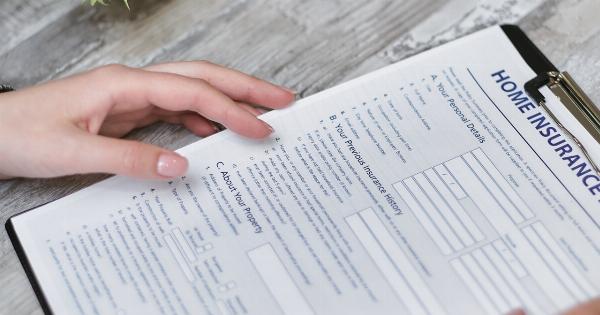With the variety of insurance options available to individuals and businesses, having the right documentation is critical to getting the right coverage.
Failing to provide the necessary documentation can result in denied claims or reduced coverage, which could be costly. Here are seven essential documents you’ll need to have on hand when seeking insurance coverage.
1. Proof of Ownership and Value
When it comes to insuring property, such as a home or car, insurers typically require proof of ownership and value. This can include the title or registration, bill of sale, or other documents that establish your right to own the property.
Additionally, you’ll need to provide documentation of the property’s value, which may include appraisals, receipts, or replacement cost estimates.
2. Identification and Contact Information
Insurers will need to verify your identity and contact information in order to accurately provide coverage. This may include a driver’s license, passport, or other government-issued identification.
Additionally, you’ll need to provide your current address and phone number, as well as any other contact information that may be relevant, such as an email address or emergency contact.
3. Proof of Income and Employment
For insurance policies that are based on income, such as disability or life insurance, you’ll need to provide proof of your income and employment.
This can include pay stubs, W-2 forms, or other documentation that shows your income and employment status. These documents help insurers determine the appropriate level of coverage and premiums.
4. Medical Records and Exams
For health insurance policies, insurers will likely ask for your medical history, including any pre-existing conditions or recent illnesses.
You may need to provide medical records from past doctors, or undergo a medical exam to establish your health status. This documentation helps insurers assess the risk of providing coverage, and can impact premiums and coverage levels.
5. Liability Insurance Requirements
If you’re seeking liability insurance for your business, you may need to provide documentation that shows you’ve met certain legal requirements.
This can include insurance certificates, permits, and licenses that demonstrate your compliance with local and state regulations. Failure to provide this documentation can result in denied claims and legal penalties.
6. Proof of Prior Insurance
If you’ve had insurance coverage in the past, you may need to provide proof of prior coverage when obtaining new insurance policies.
This can include insurance certificates, coverage summaries, or other documentation that shows your insurance history. This information helps insurers assess your risk and determine premiums and coverage levels.
7. Legal Documents
For some insurance policies, you may need to provide legal documentation that establishes your right to coverage. This can include court orders, divorce decrees, or other legal agreements that impact your insurance status.
These documents help ensure that coverage is provided to the appropriate individuals, and can impact premiums and coverage levels.


























